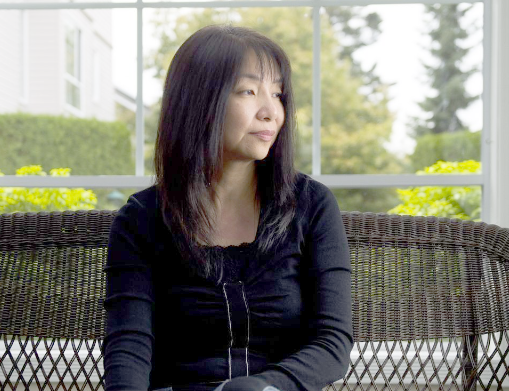Lori Wang will never forget the image of her 84-year-old father gasping and choking on his own blood while in cardiac arrest, and her desperate attempts to get staff at Richmond Hospital to help him.
She said nurses refused to do cardiopulmonary resuscitation on Zaixing Wang because a doctor had written a do-not-resuscitate order on his medical chart after assessing him in the emergency department on Sept. 21, 2015.
“The blood was pouring out of his mouth and I pressed the red button, but no one came, so I ran into the corridor shouting for help. This is when I learned they wouldn’t resuscitate him. The nurses were just wiping his blood away,” she said.
“He choked on his own blood from the lungs, when resuscitation needs to be conducted immediately without delay. And yet, standing by his bed watching him gasping for air and turning blue, the nurses refused, even at my repeated and desperate request, to lay a finger to help him.
“Instead, the assigned attending nurse spent those critical few minutes debating with me why my dad would, ‘Not make it,’ that he was a, ‘No code,’ and asked me to contact my mom to deliver the bad news.
“I simply could not fathom how this could happen in the hospital when medical professionals were in arm’s reach.”
After pleading with the nurses to help save her dad, Dr. Edgar Lau, the internist and respirologist who placed the do-not-resuscitate order on Zaixing Wang’s medical chart, was called.
Wang said her father was revived with CPR around 10 minutes after he went into cardiac arrest. However, he never regained consciousness and died Sept. 29.
Lau would later tell two review panels looking into the case that he explained his treatment plan to the family, which would have included putting a DNR order on Wang’s chart in the event of “acute cardiopulmonary deterioration,” given his “poor pulmonary reserve.”
In the recently completed reviews, both the College of Physicians and Surgeons and Vancouver Coastal Health Authority’s Patient Care Quality Office accepted Lau’s statement that the doctor had that conversation with the family.
But Wang said the doctor never told the family a do-not-resuscitate order was being placed on her father’s medical chart, and “now it’s his word against mine.”
According to the review by the college, the signature of the patient or substitute decision maker is optional for a DNR form.
Coastal Health spokeswoman Anna Marie D’Angelo said a physician doesn’t require a family’s consent for a do-not-resuscitate order for someone who is very ill with complex conditions.
“They need to discuss it with the family, certainly, but it’s not a consent decision,” D’Angelo said. “If you don’t agree (to having a do-not-resuscitate order), there’s a dispute process to get a second opinion.
“It is generally accepted in Canadian health care that medical doctors need not offer interventions that they do not consider will benefit a patient.”
Wang said her father’s diagnosis of bronchiectasis - a condition that leads to gradual deterioration of the lungs - was chronic, but it wasn’t terminal.
“I feel they can basically sign someone’s life away,” she said. “The family needs to give clear, informed consent. I didn’t sign anything and my dad didn’t sign anything. Why would we even take him to hospital if it wasn’t to seek treatment?
“For any other tests my father needed I had to sign, but for something as serious as a DNR I didn’t have to sign. If this is truly the hospital’s policy not to require a family member’s signature on a DNR order, it’s really flawed.”
Wang said her dad was admitted around 10:30 a.m. to Richmond Hospital after coughing up blood. His respiratory arrest happened after he was transferred to a hospital ward around 5 p.m. and just an hour previously a nurse had seen him well enough to go to the washroom unassisted.
Wang questions why Lau failed to meet the family that day to directly spell out the full range of medical options and prognosis for recovery, which she felt would have been high if he was given CPR immediately in the event of a cardiac arrest.
She said the DNR order was made when she left her father’s bedside to retrieve personal items for him. At that point, she said, she received a phone call from Lau, but she said the conversation was about his condition only, with no mention of a DNR order.
Lau’s statement to the college conflicts with Wang’s recollection. “Dr. Lau noted it would have been better to speak with Ms. Wang in person, but another important consideration is being able to reach a decision (on whether to place a DNR order) relatively early in the hospital course, before an emergency occurs. Dr. Lau noted he believes he had explained the process over the telephone to Ms. Wang in adequate detail, in plain words,” the college’s review stated.
“Dr. Lau believed that Ms. Wang understood the indications of the order, although this appears to be incorrect,”
For more stories, go to theprovince.com



